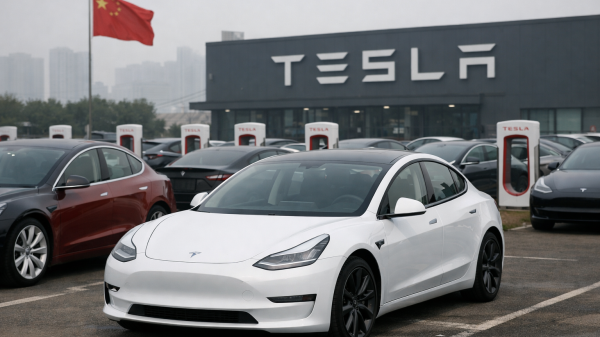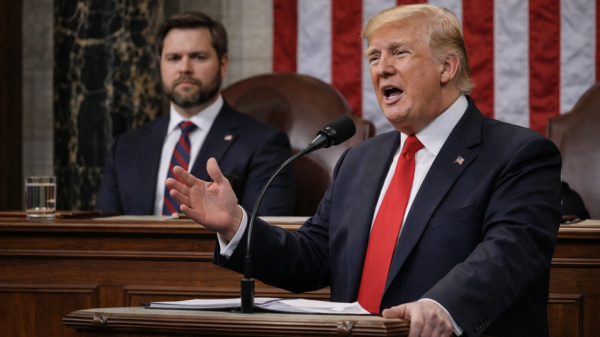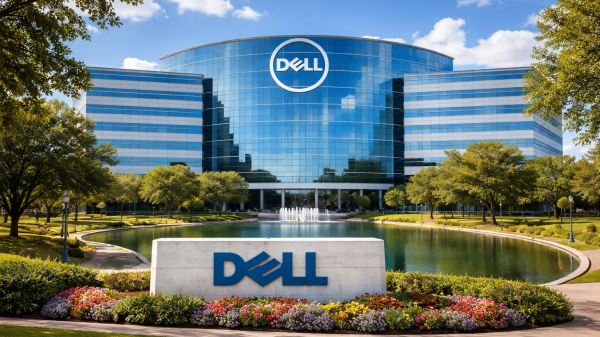US stocks were little changed on Wednesday as investors grappled with renewed valuation concerns surrounding the artificial intelligence trade, following mixed quarterly results from several leading technology companies.
The Nasdaq Composite and the S&P 500 hovered near the flatline shortly after the opening bell, while the Dow Jones Industrial Average rose 62 points, or 0.1%.
Advanced Micro Devices (AMD) fell 2% after issuing profit-margin guidance that met—but did not exceed—analyst expectations.
The company’s third-quarter earnings and revenue topped Wall Street estimates, but the lack of a stronger forward outlook left investors disappointed.
AMD currently trades at 41 times forward earnings, nearly double the S&P 500’s multiple of 23.
The decline in AMD shares followed Tuesday’s sharp drop in Palantir Technologies, which plunged 8% amid growing scepticism that AI-related valuations had become unsustainable.
Palantir trades at more than 200 times forward earnings, a figure that many investors see as difficult to justify even amid strong AI demand.
Broader tech weakness adds to pressure
The pullback in AI-linked stocks extended across the sector. Super Micro Devices dropped 7% following weaker-than-expected fiscal first-quarter results, while Arista Networks lost 6% after its latest quarterly report.
Despite the weakness, analysts say investor sentiment toward AI remains constructive over the longer term. Many view recent dips as part of a natural consolidation after a period of strong gains.
Trump tariff case in court
Outside the corporate earnings focus, investors are also watching legal developments in Washington.
The US Supreme Court on Wednesday began hearing arguments on whether President Donald Trump had the authority to impose tariffs under the International Emergency Economic Powers Act (IEEPA).
The outcome of the case could have far-reaching implications for US trade policy.
Treasury Secretary Scott Bessent said that if the court rules against the administration, there are still “lots of other authorities that can be used” to maintain tariff measures.
Jobs data
On the economic front, private-sector employment in the United States rose modestly in October, according to data from ADP Research Institute and the Stanford Digital Economy Lab.
Employers added 42,000 jobs last month, beating the Dow Jones forecast for a gain of 22,000 and rebounding from a loss of 29,000 in September.
“Private employers added jobs in October for the first time since July, but hiring was modest relative to what we reported earlier this year,” said Dr. Nela Richardson, ADP’s chief economist.
“Meanwhile, pay growth has been largely flat for more than a year, indicating that shifts in supply and demand are balanced.”
The data offered a faint sign of resilience in the labour market amid broader economic headwinds, including high borrowing costs and slowing corporate investment.
While Wall Street remains focused on tech valuations and macroeconomic signals, the broader market showed little conviction midweek.
With key economic data and corporate earnings still ahead, investors appear to be taking a cautious stance as AI enthusiasm meets valuation reality.
The post US stocks open flat as concerns over ‘AI bubble’ continue to weight on sentiment appeared first on Invezz




































